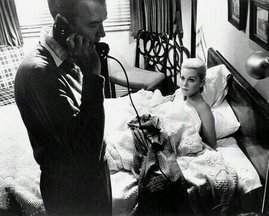Sleep paralysis is caused by a timing delay between our brain and body. It leads to an awareness of being awake, yet is accompanied by a frightening inability to move our arms or legs, utter a single word or cry out for help. It may be accompanied by unexplained sights and sounds, or even a feeling that someone else is in the room. Needless to say, it is a frightening condition that gets one’s attention.
While much more common in those under the age of 30, sleep paralysis can occur at any age. It usually shows itself in the dreaming period of sleep known as rapid eye movement, or REM. During this time our muscles (except those involved with breathing or eye movement) are temporarily weakened by signals from the brain that keeps them from moving or otherwise acting out our dreams. If we awaken from REM before this dreaming stage is complete, our brain is on full alert status while our muscular system is still waking up and getting re-activated from its sleepy state. This has the potential to create the panicked feeling of not being able to move or speak at our brain’s command. Even though this seems to last a long time, normal movement and speech usually returns within 10 seconds to several minutes.
While linked to those with the neurological condition known as narcolepsy, sleep paralysis can affect anyone. It is more common in individuals with sleep disorders, small children, shift workers, those who are experiencing increased stress or anxiety, are sleep deprived, lie on their backs, or have a family history of sleep paralysis. It is estimated to affect between 40 percent to 50 percent of people at least once in their lifetimes, and about 1 percent to 2 percent on a regular basis. Clues that you may have sleep paralysis include:
Onset immediately upon awakening or just prior to falling asleep.
Inability to speak or utter a sound until your whole body “wakes up”.
In spite of being conscious, you cannot move your arms or legs for a brief period upon awakening or just prior to falling asleep.
Unexplained fear.
Visual or auditory hallucinations that may be accompanied by unexplained smells.
Sensing an unexplained “presence” in the room.
More common during times of stress.
A “floating” sensation.
A pressure feeling on your chest (this should be reported to your personal physician).
The following steps have the potential to greatly decrease episodes of sleep paralysis:
Establishing and maintaining a regular sleep schedule
Stress reduction techniques
No large meals or caffeinated products within three hours of bedtime
Sleeping on the side and not on your back
Regular exercise
I am concerned because it appears you are experiencing frequent episodes of sleep paralysis. I would encourage you to keep a diary of your symptoms (paralysis, strange sounds or smells, others), as well as how often they occur. It is also important to make an appointment with a physician skilled in the diagnosis and treatment of sleep disorders. The information you provide will be extremely helpful. Additionally, the sleep specialist will most likely order a test known as a polysomnogram. This is a sleep study that records specific activities (skeletal muscle tone, patterns of REM sleep, others) while you are asleep. All this data will be used to determine whether you have a sleep disorder, and if so, what methods (including medication) will be used to alleviate the symptoms.
Wednesday, August 22, 2007
Subscribe to:
Post Comments (Atom)








2 comments:
sleeping pills or tranquilizers are underused.
I've had this happen to me before. Usually a cry out for help ta Jesus gets me out of one of these and makes it all better.
Post a Comment